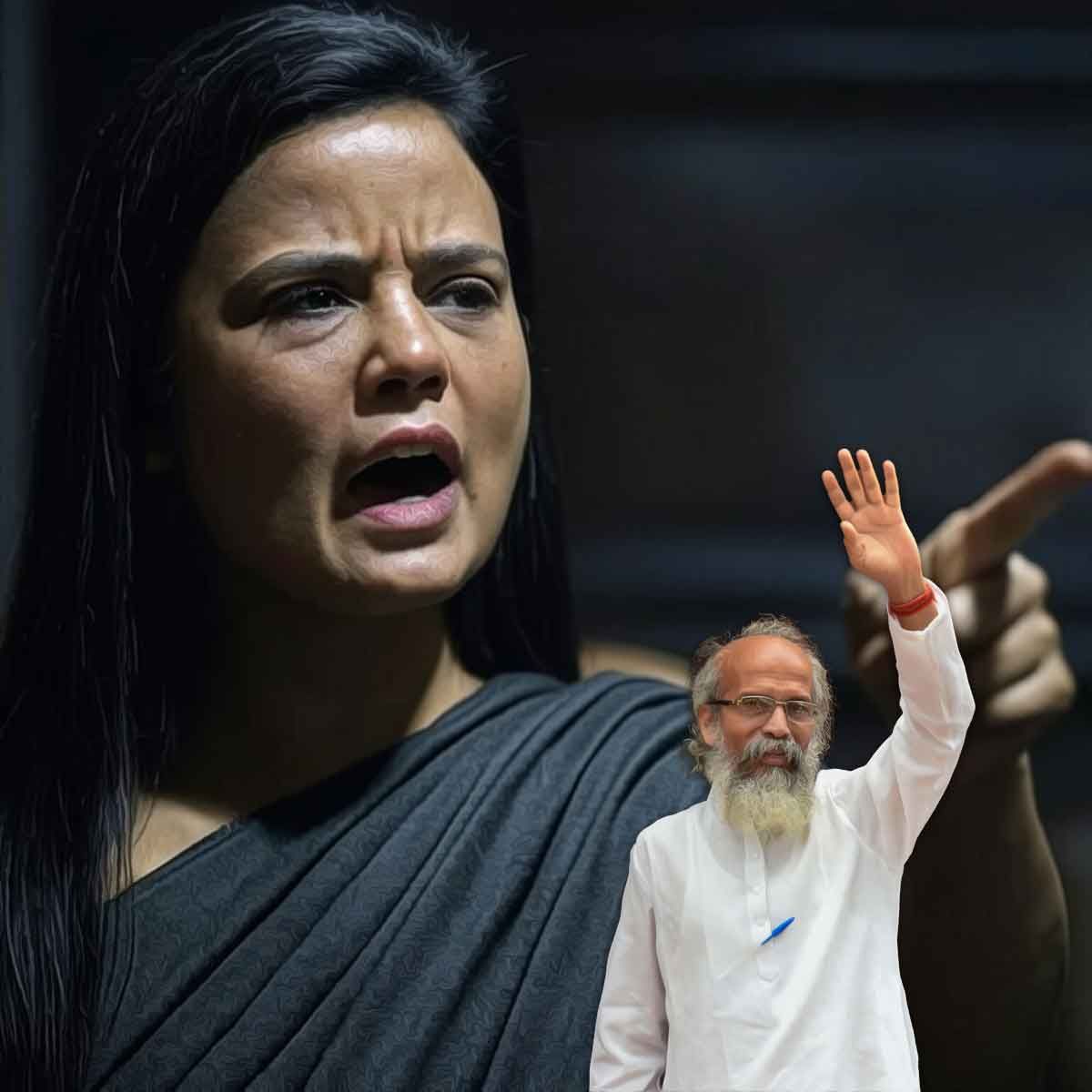More Coverage
Twitter Coverage
JOIN SATYAAGRAH SOCIAL MEDIA
‘No Life Giver In World Like The Mother’: Justice Samir Dave of Gujarat High Court recently invoked a Hindu religious text 'Skanda Purana' to emphasise the value of a mother in society, while permitting a 17-year-old girl to abort her 19-week pregnancy

In a ruling that has stirred a pot of controversy, the Gujarat High Court has seemingly juxtaposed two conflicting principles - the autonomous rights of a woman over her body and the high pedestal on which the notion of motherhood is placed as per Hindu scriptures. In a decision that is bound to evoke a myriad of reactions, the court has allowed a 17-year-old girl to terminate her 19-week pregnancy, while paradoxically highlighting the revered position of a mother in society as depicted in the 'Skanda Purana'.
Justice Samir Dave, presiding over the case, observed, "The court cannot compel the victim to continue her pregnancy, if she does not want to do so." This stand, a nod to the autonomy and the rights of the girl involved, seems almost in contradiction to the cultural reference made subsequently.
However, what seems critically conflicting here is the invocation of a verse from the Skanda Purana, a revered Hindu religious text, that seems to be used more as a moral reminder than a relevant context to the case at hand. The court echoed, "नास्ति मातृसमा छाया नास्ति मातृसमा गतिः। नास्ति मातृसमं त्राणं नास्ति समा प्रपा।। (Skanda Purana: Chapter 6. 103-104) अर्थात - माता के समान कोई छाया नहीं, कोई आश्रय नहीं , कोई सुरक्षा नहीं। माता के समान इस विश्व में कोई जीवनदाता नहीं। (Translation: There is no shade, no shelter, no protection like a mother. There is no life giver in this world like a mother)," marking the ruling date as September 8.
|
One cannot help but raise an eyebrow at the perplexing duality of the judgment. On one hand, there is a rightful acknowledgment of an individual's control over their body and decisions pertaining to it. On the other, the citation of a religious text appears to indirectly extol the virtues of motherhood, possibly nudging towards a moral commentary on the decision to terminate the pregnancy.
In dissecting this recent judgment, it becomes apparent that the intertwining of legal rulings with religious scriptures is not only unwarranted but potentially detrimental in maintaining a secular perspective that ought to govern the judicial system. This approach seems to bear a tinge of moral persuasion, veering slightly off the path of impartiality, a path that should strictly adhere to constitutional provisions and the protection of individual rights. The invocation of religious scriptures, in this case, seems less like a tribute to the sanctity of motherhood and more like a subtle, albeit unnecessary, moral adjudication.
In a turn of events that shed light on the layered complexity of the case at hand, the 22-year-old man implicated in the incident vociferously objected to the abortion of the fetus. The individual, already under the scanner as per the stipulations of the Protection of Children from Sexual Offences Act (POCSO Act), professed his readiness to marry the young girl, thereby assuming responsibility for both her and the impending child.
In a detailed affidavit presented to the court, the man underscored that the crux of the discord between the concerned parties was rooted in caste discrepancies. He further asserted that contrary to popular belief, the girl was not in favor of terminating the pregnancy, and alleged that the coercive stance adopted by her parents was the driving force behind the plea for abortion. In light of these claims, he ardently urged the bench to dismiss the plea to terminate the pregnancy.
Despite the impassioned plea from the respondent, the court opted to prioritize the wishes and desires of the young girl involved in the case. The court iterated, "The respondent no.6 has filed an affidavit objecting to the termination of pregnancy of victim, this Court would give weightage to the wish and desire of the victim, though she is residing with her parents."
Furthermore, the court highlighted a pivotal aspect that potentially undermines the legitimacy of the man's objection - the lack of legal recognition accorded to the relationship between him and the minor. This facet significantly weakened his stance, as the girl is considered a minor, thereby rendering any relationship with her not legally recognized. The bench accentuated that in this scenario, the man's objections did not bear substantial weight, leaving the court to focus primarily on safeguarding the minor's interests and wishes.
In the ongoing discourse surrounding Justice Dave's adjudications, it is pertinent to note that his penchant for drawing upon religious texts in his rulings is not an isolated incident. It seems to be evolving as a pattern that distinctly marks his approach towards sensitive cases.
In a past instance, precisely on June 9, the justice brought the ancient text of Manusmriti into the spotlight to illustrate the early marital and maternal experiences of young girls in bygone eras, a period where girls were generally wedded off between the tender ages of 14 and 16, bearing children by 17. This reference, as expected, beckoned a wave of criticism from various factions of society.
Responding to the wave of dissent that his remarks engendered, Justice Dave turned once again to religious scriptures for support. Drawing from the revered Bhagavad Gita, he cited the concept of a "Stithaprajna", suggesting that a judge should remain unaffected by both criticism and appreciation, maintaining an even keel in the face of diverse opinions.
Further establishing his inclination towards scriptural references, in December of 2022, Justice Dave recited a famous shloka 'Guru Brahma Gurur Vishnu Guru Devo Maheshwaraha Guru Saakshat Para Brahma Tasmai Sree Gurave Namaha' while dismissing the bail plea of a teacher embroiled in a sexual abuse case concerning a student.
In the courtroom, Advocate Bhargav Mehta championed the cause of the victim's father, presenting his case with zeal. Advocates Amit Chaudhary and Devendra Patel rallied behind the respondent who staunchly objected to the abortion plea, presenting his viewpoint with fervour. Additional Public Prosecutor Bhargav Pandya was the voice of the State, representing the government's stance on the case.
As we stand at the nexus of religious scripture and legal discourse, one cannot ignore the concerning propensity of blending moral teachings from ancient texts into contemporary legal proceedings, a move that is potentially fraught with complexities and nuances that require deep scrutiny.
In conclusion, this case lays bare the intricate interplay between religion, society, and the legal system, presenting a vivid tableau of the challenges and concerns that permeate the Indian judiciary. While the utilization of ancient texts may offer a unique perspective, it is imperative to maintain a critical eye, questioning the appropriateness and relevance of such references in shaping judgements that have far-reaching implications on the lives involved. One hopes that future judgements will tread this delicate line with caution and discernment, fostering a legal space that is both just and empathetic.
 Support Us
Support Us
Satyagraha was born from the heart of our land, with an undying aim to unveil the true essence of Bharat. It seeks to illuminate the hidden tales of our valiant freedom fighters and the rich chronicles that haven't yet sung their complete melody in the mainstream.
While platforms like NDTV and 'The Wire' effortlessly garner funds under the banner of safeguarding democracy, we at Satyagraha walk a different path. Our strength and resonance come from you. In this journey to weave a stronger Bharat, every little contribution amplifies our voice. Let's come together, contribute as you can, and champion the true spirit of our nation.
 |  |  |
| ICICI Bank of Satyaagrah | Razorpay Bank of Satyaagrah | PayPal Bank of Satyaagrah - For International Payments |
If all above doesn't work, then try the LINK below:
Please share the article on other platforms
DISCLAIMER: The author is solely responsible for the views expressed in this article. The author carries the responsibility for citing and/or licensing of images utilized within the text. The website also frequently uses non-commercial images for representational purposes only in line with the article. We are not responsible for the authenticity of such images. If some images have a copyright issue, we request the person/entity to contact us at This email address is being protected from spambots. You need JavaScript enabled to view it. and we will take the necessary actions to resolve the issue.
Related Articles
- "कलयुगी नारी": Gamer Shikha Metray, a NIFT graduate and Ex-e-commerce employee, arrested and bailed by Ghaziabad Police for running a pornographic channel on YouTube as 'Kuwari Begum' for 2 years, use to upload disturbing images and obscene videos
- Viral Video: Heavily intoxicated woman abusing police, her cab driver, passersby on the road and creating ruckus in Mumbai gone viral, held Police officer by his collar and threatened him, here is what we know about the case
- In a twist of irony, Mona Hingu, a nail art artist, 'nailed' her own performance, painting the streets of Vadodara with chaos, even in a dry state, some still find a way to 'wet' their spirits, challenging not just the law, but also the hands that enforce
- NCERT turns woke with sex-interested contributor Vikramaditya Sahai pushing gender jargon on children: How LGBT activists are calling legitimate criticism of a public figure ‘transphobia’
- “A mother’s arms are made of tenderness and children sleep soundly in them”: Bombay High Court grants bail to woman accused of throwing her newborn baby from top of building, she was upset with her husband, and suspected of him committing adultery
- "AI in, Emotions out": Suchana Seth, the CEO of artificial intelligence start-up Mindful AI Lab, murdered her 4-year-old son because her ex-husband was to meet him after getting court-granted visitation rights, a situation she didn't like, arrested
- How feminism is causing irreparable damage to Hindu society
- "एक माँ ऐसी भी": In Silchar, a mother poured hot oil on her three-year-old daughter, causing severe burns to her stomach, chest, and upper lips, a cruel response to the child's crying that led to urgent police action and widespread community outrage
- "One’s dignity may be assaulted, vandalized and cruelly mocked, but it can never be taken away unless it is surrendered": Eight girls of Chandigarh University attempted suicide after a classmate leaked nude videos of almost 60 students while taking shower
- "True identity theft is not financial. It's spiritual. It's been taken": Woke agenda progresses as MTV ‘stay freaky’ awards and 10-year-old trans model plans surgery, two women became men and turned son into a girl referring to the baby as “theybie”






















